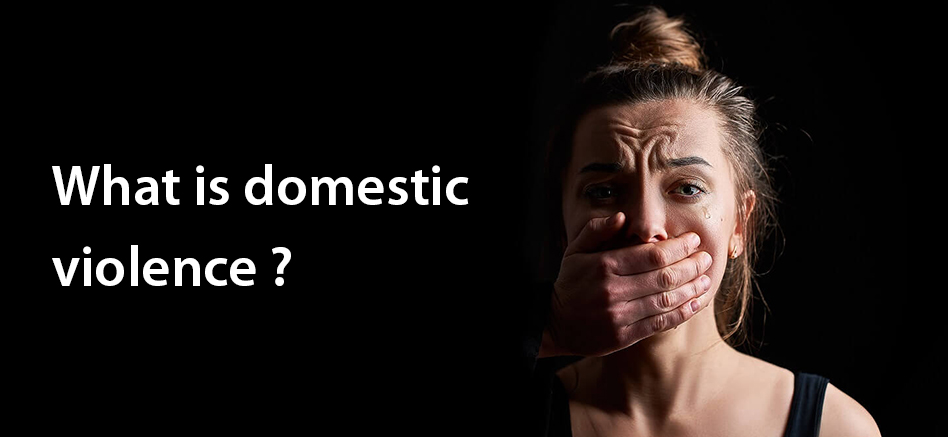
What is domestic violence?
Arising from the personal nature of the relationship between the victim and the victim, and being created or created by the relevant person in or out of the home environment
- An error specified in the first schedule
- Yami is a passionate scolding.Here, the Act itself defines what a provocative reprimand is. Accordingly, it means an act that is in the form of an act of insult or insult directed at a victim of a serious nature and has the effect of causing serious immediate harm to the victim.
In this regard, this provision of the Act implies that in the case of provocative reprimand, anyone who proves the offense caused by the Act has the power to establish an offense subject to other provisions of the Act. This provision of the Act bears a striking resemblance to the defamation or criminal defamation which was recently removed from the Law Book as a repressive law. But while there are many vulgarities and limitations, such as justification for defamation in the Penal Code, the only limitation to this provision under this Act is that malicious reprimand should be based on the personal relationships of the parties. Since such malicious reprimands are often associated with personal traits, it is very likely that in a society like Sri Lanka, there will be times when a reprimand by a mother with the intention of getting her child on the right path will be combined with almost all of the above. In this situation and in terms of section (2) (b) of the Act, the request made by the court on behalf of the child when the victim is a child
By one of the child’s parents or the child’s guardian
By a resident of the place where the child resides
By a person authorized in writing by the National Child Protection Authority established under the National Child Protection Authority Act No. 50 of 1985
There is a risk of misleading the judiciary for personal reasons as the provisions have been made to make submissions and the Act does not provide any restrictions on this provision. Further, under this provision, a person who is convicted and issued an order before a court of law will be able to base his or her case on a civil case seeking damages in a district court for contempt.
It is important to consider the matters mentioned in the first schedule of the Act in terms of section. According to it, domestic violence belongs under the Act
All offenses contained in Chapter Xiv of the Penal Code
Offense under Section 372 of the Penal Code
Intimidation of criminals under Section 483 of the Penal Code
Attempt to commit any of the above offenses
Here it will be important to consider each of these factors separately. One of the most important features that emerges here is that Domestic Violence Act No. 34 of 2005 is compounded by the fact that it is based on offenses in the Penal Code. Attempting to commit certain offenses under the Penal Code has been declared an offense by the Act itself, but the first Schedule to Act No. 34 of 2005 states that attempting to commit all offenses mentioned therein is also incorporated into domestic violence.
Chapter XIV, Chapter 293 to Article 365 of the Penal Code is a comprehensive chapter consisting of 72 sections, the title of which is the offenses affecting the human body. Thus
Attempt to commit any of the above offenses
Here it will be important to consider each of these factors separately. One of the most important features that emerges here is that Domestic Violence Act No. 34 of 2005 is compounded by the fact that it is based on offenses in the Penal Code. Attempting to commit certain offenses under the Penal Code has been declared an offense by the Act itself, but the first Schedule to Act No. 34 of 2005 states that attempting to commit all offenses mentioned therein is also incorporated into domestic violence.
Chapter XIV, Chapter 293 to Article 365 of the Penal Code is a comprehensive chapter consisting of 72 sections, the title of which is the offenses affecting the human body. Thus
Abortion “Danger to the Unborn” Abandonment and Concealment of Births (303-309)
Injuries (310-329)
Imprisonment and Imprisonment (330-339)
Criminal coercion and oppression (340-349)
Abduction, Abduction and Slavery (350-362)
Rape of women (363-364)
Unnatural offenses and indecent acts among persons (365)
Mistakes and attempts to commit the offenses under the above headings are also referred to as Domestic Violence under the Act. Accordingly, it is clear that the definition of domestic violence in the Act covers a very wide range. However, there are some problematic situations in this. This can be illustrated by an example like this. Pursuant to Chapter 294 of the Penal Code, Section 344 of the Act, Section 344 states that murder is a form of domestic violence. It is clear that the purpose of the Act is null and void when the perpetrator is murdered by the perpetrator and the victim dies. Similarly, the maximum penalty imposed by Section 18 of this Act is due to the fact that in the event of the death of a person other than the victim in a murder committed by the person concerned, the Penal Code, which is in force above this Act, comes into force to impose punishment on the person concerned. A fine not exceeding Rs.
In spite of this, the Act has been able to provide redress for offenses which have previously arisen from personal relations and which have aggravated the offenses of the Penal Code and which have largely avoided the enforcement of the law on personal relations, such as causing minor injuries in the home. It appears that this Act has covered up to a minimum the amount of offense that has hitherto been suppressed. This can be seen as a high standard in a democratic society.